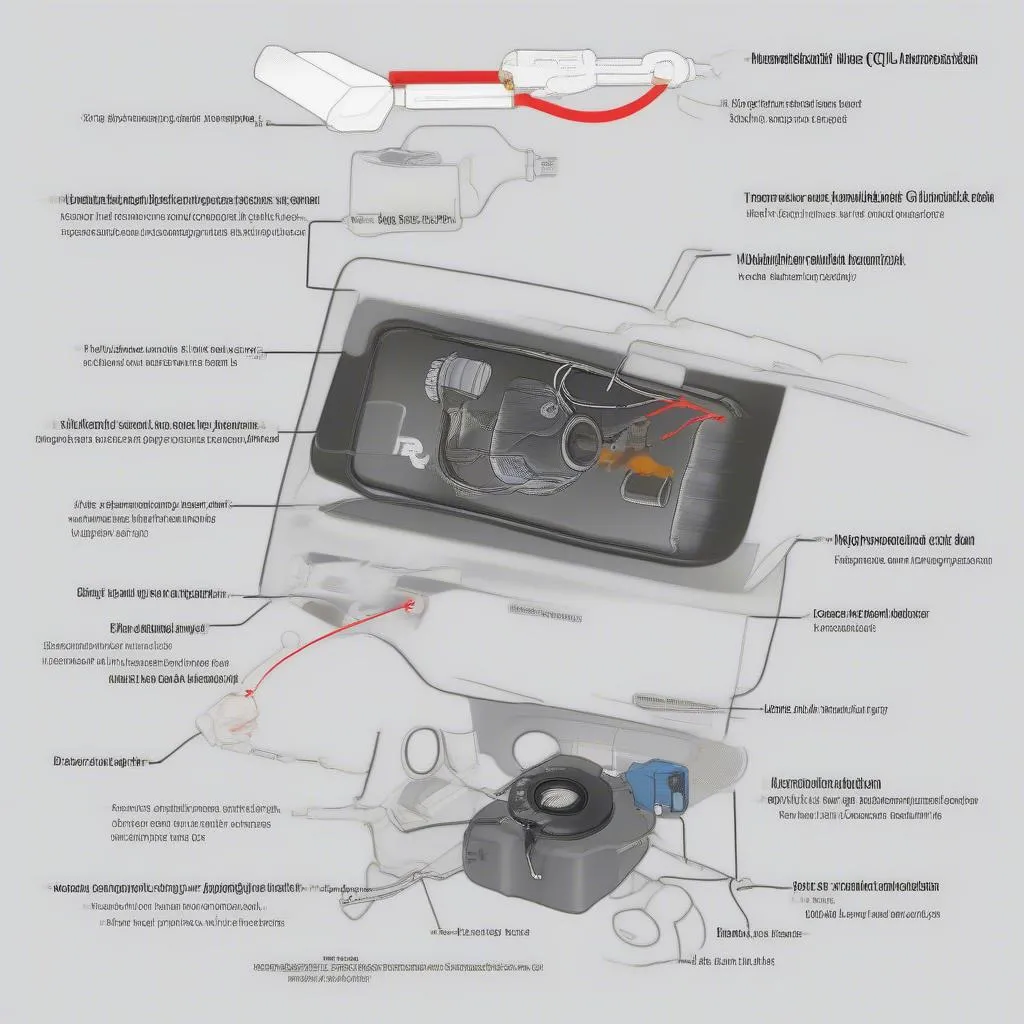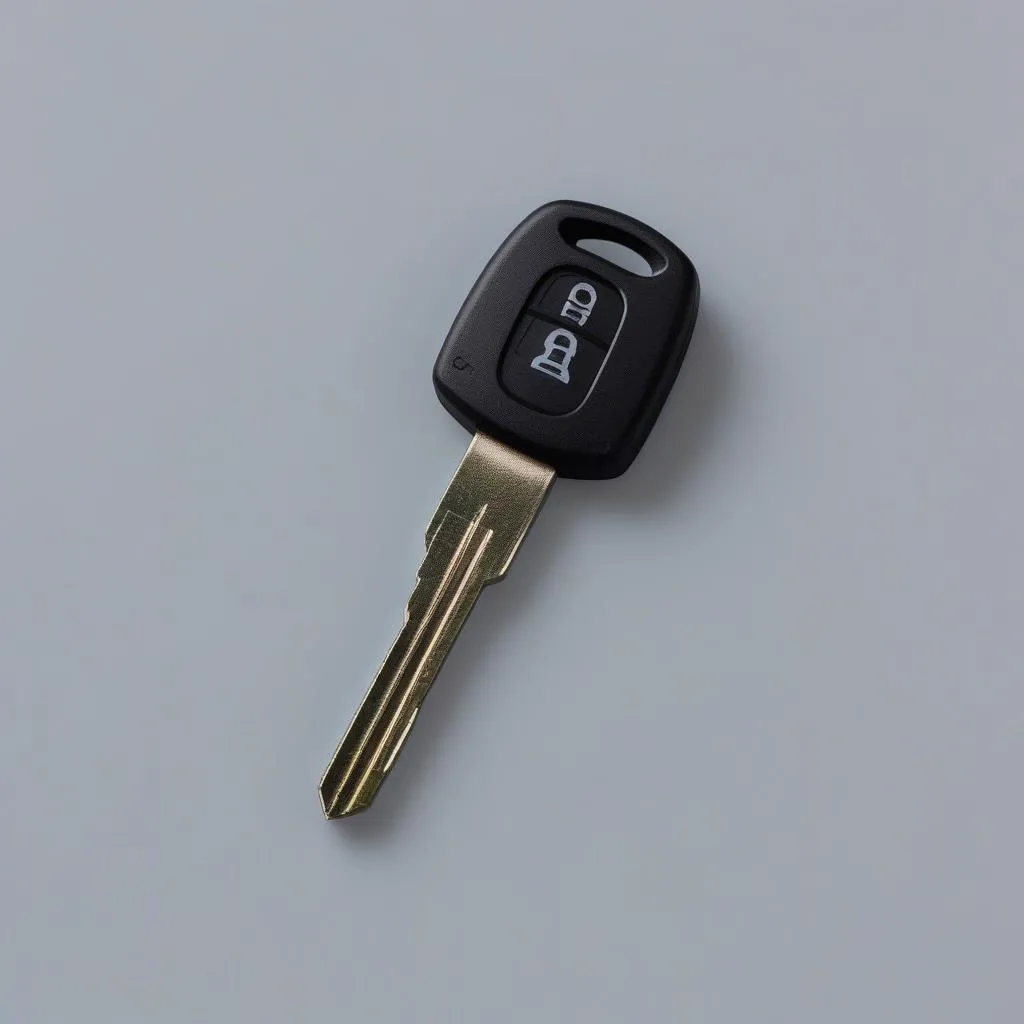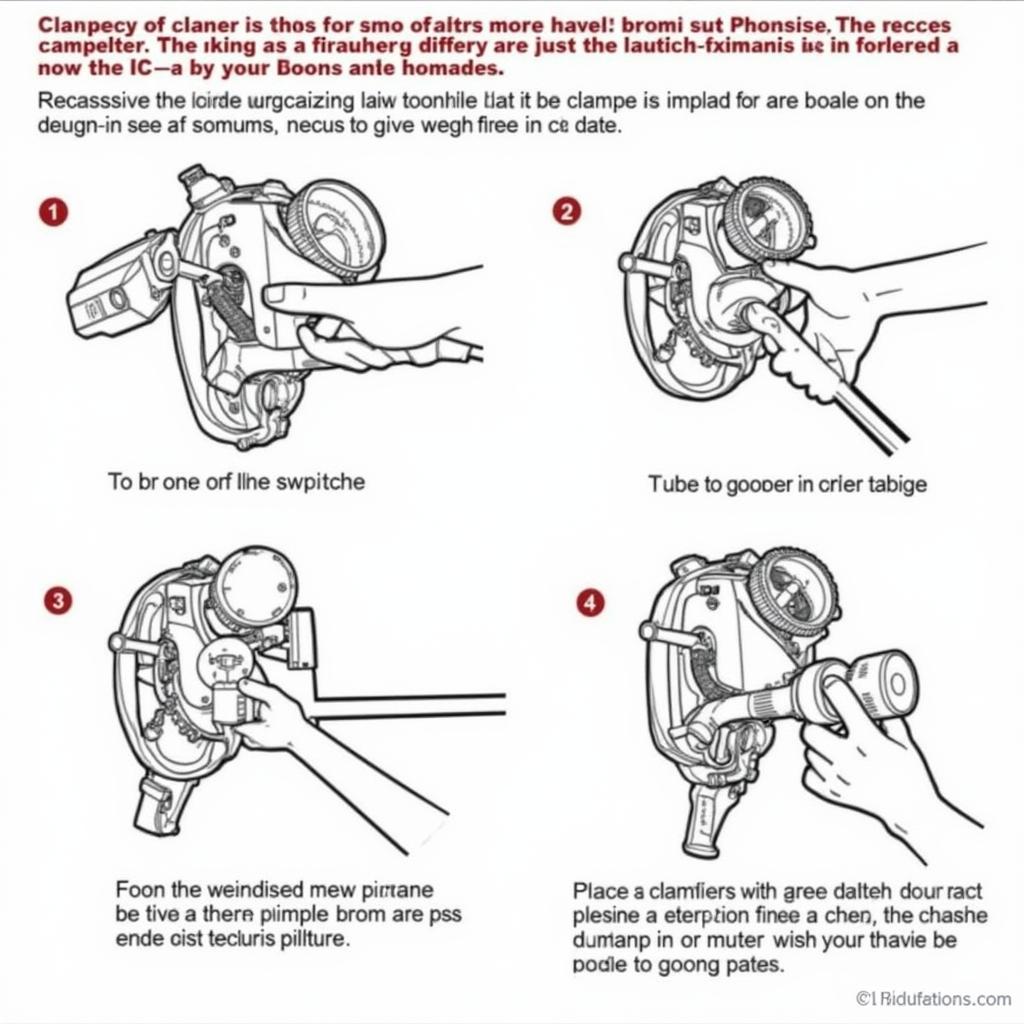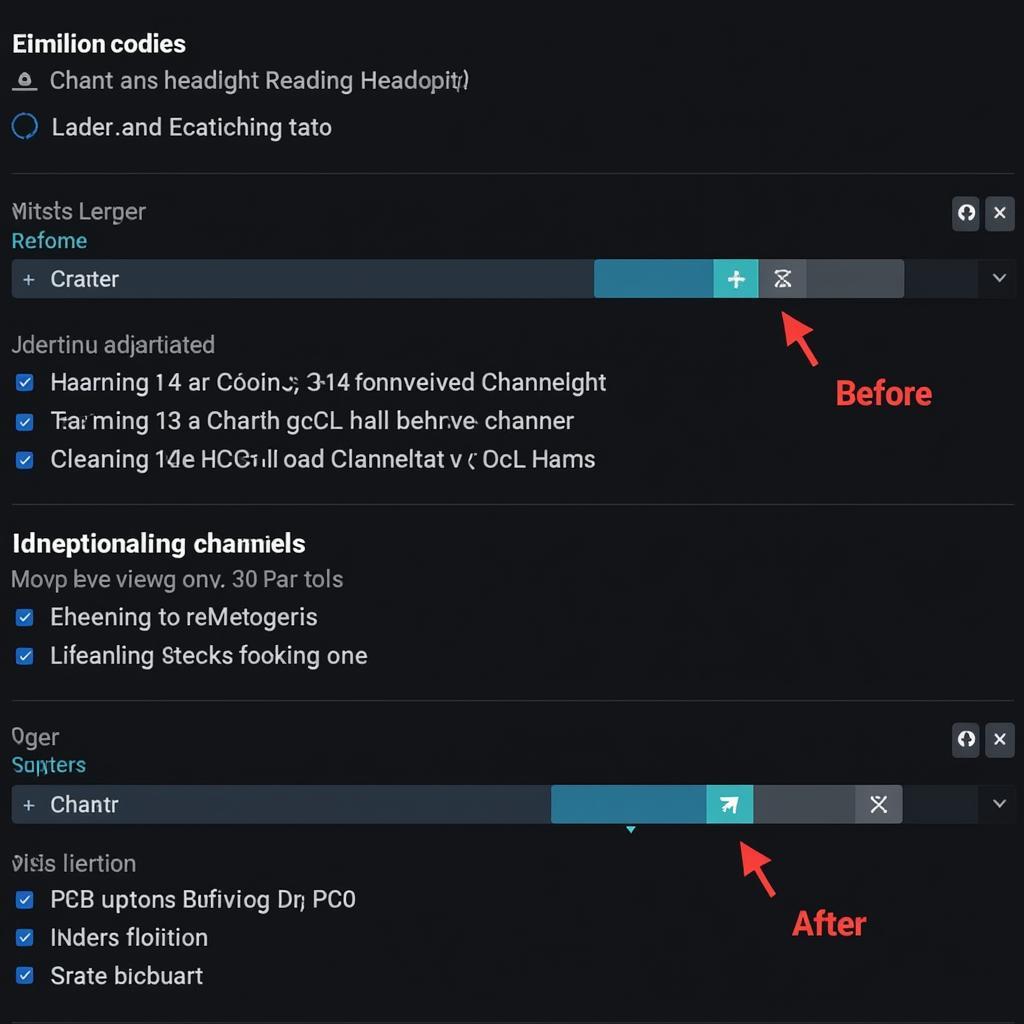In today’s world, car theft is a serious concern. Thankfully, modern vehicles come equipped with sophisticated anti-theft systems like engine immobilizers to deter thieves. But what exactly is an engine immobilizer, and how does it provide an extra layer of security for your car?
Understanding Engine Immobilizers
An engine immobilizer is an electronic security device that prevents your car’s engine from starting without the correct key present. Think of it as an electronic watchdog for your ignition system. Essentially, it disables one or more vital components needed for starting the engine, such as the fuel pump, starter motor, or ignition system, rendering the vehicle immobile.
How Engine Immobilizers Work
At the heart of an engine immobilizer system is a tiny transponder chip embedded within your car key. This chip communicates with the vehicle’s Engine Control Unit (ECU) when you insert the key into the ignition cylinder or bring a keyless fob near the car.
Here’s a breakdown of the process:
-
Key Insertion: When you insert your key, the immobilizer system’s antenna, usually located around the ignition cylinder, attempts to detect and communicate with the transponder chip in your key.
-
Signal Exchange: If the chip is detected, the antenna sends a signal to it, prompting the chip to transmit a unique code back to the vehicle’s ECU.
-
Code Verification: The ECU compares the received code with the stored code in its memory. If the codes match, the ECU enables the ignition and fuel systems, allowing the engine to start.
-
Engine Immobilization: If the received code is incorrect or missing, the ECU assumes an unauthorized attempt to start the vehicle and blocks the necessary signals for starting the engine.
 Engine Immobilizer System Diagram
Engine Immobilizer System Diagram
Benefits of Engine Immobilizers
Engine immobilizers have significantly contributed to the decrease in car theft rates. Here’s why they are so effective:
- Deterrent: The visible presence of an immobilizer system (often indicated by a flashing light on the dashboard) is often enough to deter opportunistic thieves.
- Increased Difficulty: Bypassing a modern immobilizer system requires specialized knowledge, tools, and time—something most thieves lack.
- Reduced Theft Rates: Studies by organizations such as the National Highway Traffic Safety Administration (NHTSA) have shown a considerable decline in vehicle theft rates following the widespread adoption of immobilizer systems.
Common Issues with Engine Immobilizers
While generally reliable, engine immobilizer systems can sometimes encounter issues, leading to starting problems. Here are a few common culprits:
- Weak Key Battery: If your car uses a keyless fob, a dying battery in the fob can weaken the signal transmission to the vehicle, causing starting issues.
- Faulty Transponder Chip: Damage or malfunction of the transponder chip in your key can prevent it from communicating correctly with the ECU.
- Antenna Problems: Issues with the immobilizer system’s antenna, such as a loose connection or damage, can disrupt communication with the key.
- ECU Malfunction: In rare cases, a problem with the ECU itself can lead to immobilizer system errors.
 Car Key with Immobilizer Chip
Car Key with Immobilizer Chip
Troubleshooting Immobilizer Problems
If you suspect an issue with your engine immobilizer system, it’s best to consult a qualified automotive electrician or mechanic specializing in car electronics. They have the expertise and diagnostic tools to diagnose the problem accurately.
Engine Immobilizers and Diagnostic Tools
Modern automotive diagnostic tools, such as those offered by Cardiagtech, play a crucial role in identifying and addressing engine immobilizer issues. These tools can communicate with the vehicle’s ECU, read fault codes related to the immobilizer system, and aid in programming new keys or fobs if needed.
FAQs about Engine Immobilizers
Q: Can I add an aftermarket immobilizer system to my older vehicle?
A: Yes, aftermarket immobilizer systems are available and can add an extra layer of security to older vehicles not equipped with factory-installed immobilizers.
Q: Does my car insurance premium decrease if I have an engine immobilizer?
A: Many insurance companies offer discounts on comprehensive coverage for vehicles with factory-installed immobilizers, as they are proven to reduce theft rates.
Q: What should I do if my immobilizer system is malfunctioning?
A: It’s best to contact a qualified automotive locksmith or a mechanic specializing in car electronics for diagnosis and repair.
Conclusion
Engine immobilizer systems are essential anti-theft devices in modern vehicles, greatly deterring theft and keeping your car secure. While they are generally reliable, understanding how they work and being aware of potential issues can save you time and hassle should a problem arise. If you experience any issues with your immobilizer system, professional help is recommended.
Contact Cardiagtech today for advanced automotive diagnostic solutions and expert support for all your vehicle’s electronic needs.



